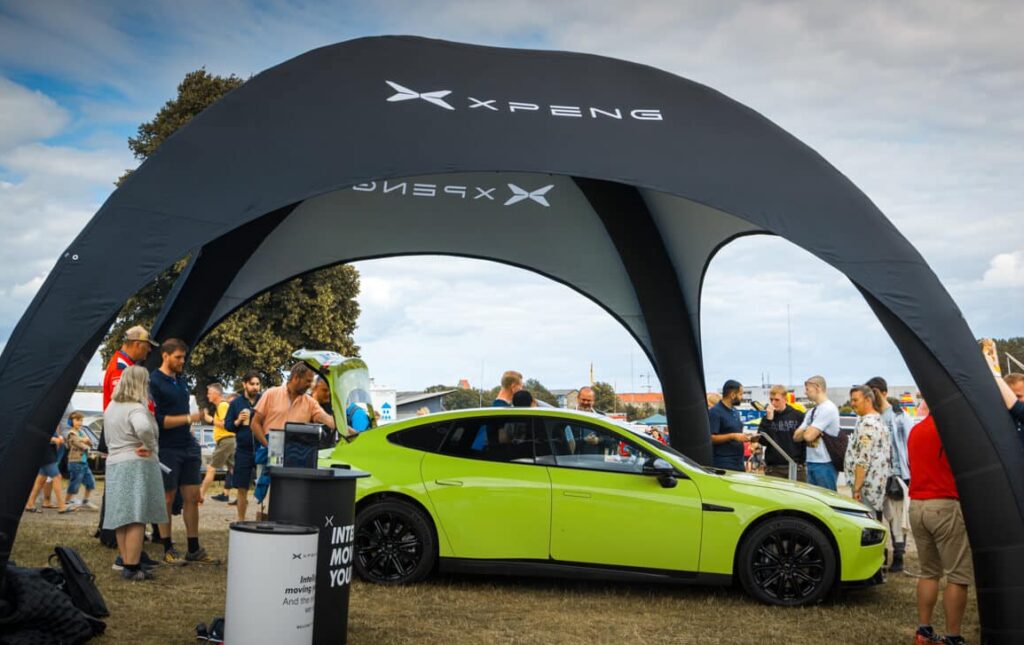Our green focus

Our history
Our green visions
CHGP's overall goal is for the organization to be a frontrunner in not only showing the early history of motorsport, but also to create insight into the entire history of motorsport - from the past, through the present and especially to future technologies within mobility.
Copenhagen Historic Grand Prix thus has the goal of acting as a showcase and information arena for future technologies within sustainable potential and environmentally friendly mobility.
As one of the largest Danish racing events, we want to not only set the standards for how an event should be held as sustainably as possible, but also to communicate and inspire similar events on how such a process can/should unfold.
Our goal
2022
Investigate and test the possibilities for using CO2-neutral fuel, as well as create an overview of CHGP's CO2 footprint, and based on this, create and implement strategies for which areas of emissions we will focus on in 2023.
2023
Meet the criteria for 2 FIA stars, implement strategies from 2022 goals, conduct a holistic measurement of the event's CO2 emissions, and focus on disseminating sustainable alternatives.
2025 goals
Meet the criteria for 3 FIA stars, as well as implement sustainable alternatives for the most emitting parts of the CHGP.
Our green initiatives

Our first stars
In 2022, CHGP received the first FIA Environmental Accreditation Programme star. An accreditation received and granted through collaboration with the FIA as proof that we here at CHGP demonstrate fundamental environmental practices. Most importantly, based on our high ambitions and commitments to improve our sustainable practices and reduce the event’s environmental impact both in the local area and on the global CO2 footprint. In 2023, we received the second out of three possible stars in this programme.
Specifically, we here at CHGP have received our stars based on a number of practical initiatives, as well as our commitment to the FIA's sustainable goals, and that these must be implemented within the foreseeable future.
What is FIA Environmental Accreditation?
The Environmental Accreditation Programme is a tool created by the FIA (Fédération Internationale de l'Automobile) to help and structure motorsport, mobility companies and organisations worldwide. This is mainly by measuring and strengthening their environmental activities, as well as spreading knowledge and understanding of where and how the different stakeholders can focus their work to achieve the greatest possible impact.
Specifically, the program introduces a 3-level system governed by a structured environmental management system. This translates into the organization/company/event that chooses to take responsibility for their environmental impact receiving 1, 2, or 3 stars, depending on how many and to what extent they comply with and strive for the requirements of each of the FIA's 17 core principles of environmental management.
Initiatives 2022
- Electric shuttle buses for transportation to and from the site
- Testing of CO2 compensated fuel for the 2022 race for the kingdom
- Annual noise pollution measurement
- Green city showcase for the green technologies of the future
- Deposit tokens on sold drinking glasses, for an increased incentive to return
- The electricity supplied to CHGP in 2022 came from either Ørsted or from a generator located on site.
Initiatives 2023
- Focus on reducing food waste
- Improved handling of fuel/oil spills
- Improved handling of used tires and car parts
- Sustainably produced merchandise and bracelets
- Focus on exhibitions of electric or hybrid cars on the square
- Increased use of CO2 compensated or synthetic fuel for all participants
- Report on the entire event's CO2 emissions
- Create space and thus increase the incentive for participants to cycle to the event by allocating part of the space for bicycle parking
- The possibility of vegetarian alternatives in the food stalls
- Focus on promoting sustainable driving
- Integrating all stakeholders' ideas to improve the green focus
- * Achieve and meet the requirements to get 2 FIA stars
No. 3. FIA star
It is an essential part of Copenhagen Historic Grand Prix's goals to achieve the 3rd and final star within the coming years.
Overall, this will mean that CHGP will focus on the event's CO2 emissions and handling of material waste. Since the event in 2023, we have measured CO2 emissions for the entire organization, increased the possibilities for using CO2-neutral fuel, had a clear strategy to avoid food waste, and handling and redistributing excess food.
At CHGP 2024, we implemented even more initiatives to increase sustainability – for example, waste sorting on site.

Our green 'city'
Green city
Green City is the name given to an area of the square that is set aside for the exhibition, dissemination and testing of future technologies within green mobility. Here, in previous years, spectators have been able to test and ask questions to research and engineering students about a number of green innovations.
In previous years, Green City has had students from DTU, SDU, and AAU out to show and explain electric racing cars they had built themselves.
The goal for Green City is that in the coming years it can be a platform for disseminating a number of future technologies within green transport, chemical and biological technologies for the removal and storage of CO2 from the atmosphere, as well as the production of biofuels and chemical fuels and much, much more.
